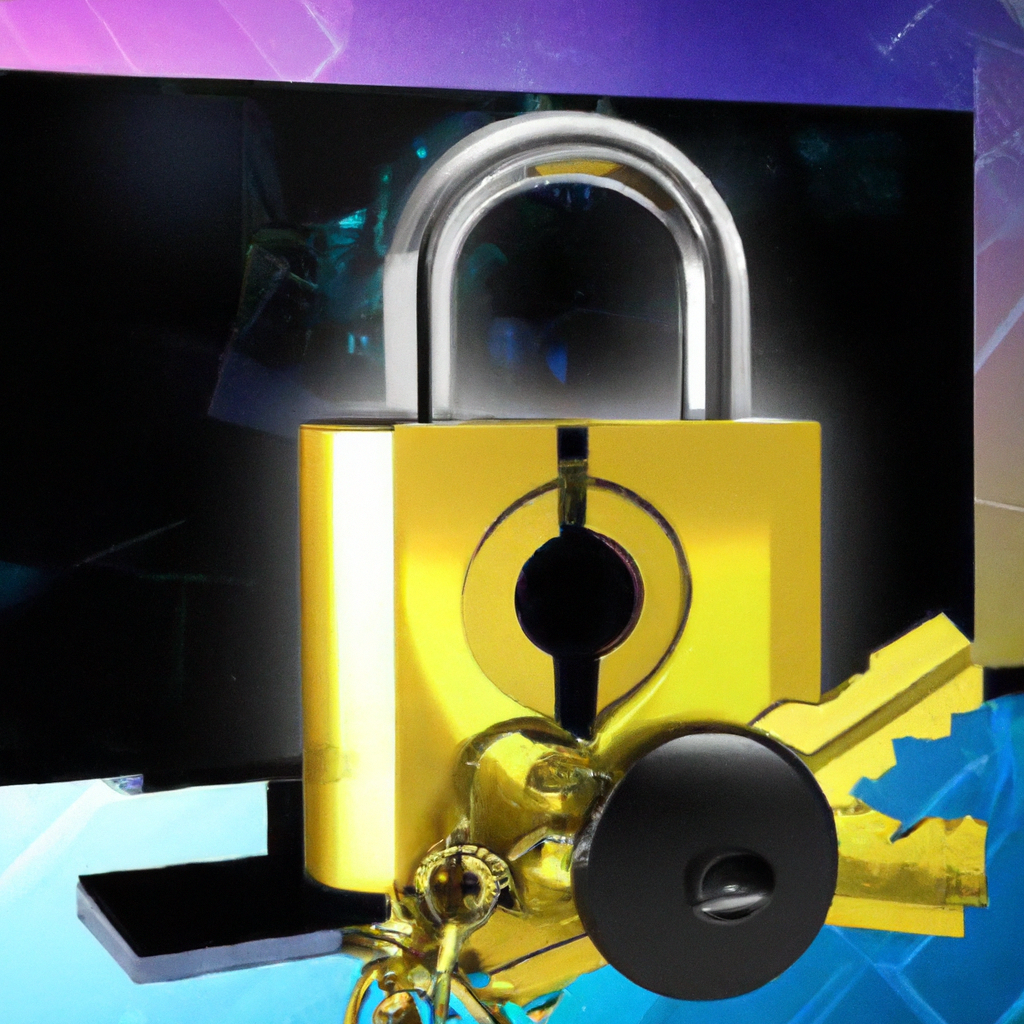In this article, you’ll discover the essential privacy considerations that come with the territory of using smart entertainment technology. As our lives become increasingly interconnected with the digital world, it’s important to understand the potential risks and take measures to protect our personal information. From voice-activated virtual assistants to smart TVs and gaming consoles, we’ll explore the ways in which these devices collect and use your data, and provide practical tips on how to maintain your privacy while enjoying the benefits of these innovative technologies. Get ready to navigate the world of smart entertainment with confidence. Smart entertainment technology has become increasingly prevalent in homes, offering a variety of exciting features and convenient capabilities. However, it’s important to consider the privacy implications that come with these devices. In this article, we will explore the various aspects of data collection and sharing, potential privacy risks, security measures, and user controls associated with smart entertainment technology.

Data Collection and Sharing
Types of data collected by smart entertainment technology
Smart entertainment technology, such as smart TVs or streaming devices, may collect various types of data to enhance user experiences. This can include information about your viewing habits, preferences, and search queries. Additionally, some devices may collect location data or gather data through voice commands and interactions with voice assistants.
How data is shared and with whom
Data collected by smart entertainment technology can be shared with third-party companies for a variety of purposes. This may include advertising, content recommendations, or improving the functionality of the devices. Data sharing can occur through partnerships, integrations with third-party apps, or by selling anonymized data to data brokers.
Privacy policies and user consent
To ensure transparency and user consent, smart entertainment technology manufacturers are required to provide privacy policies that outline how data is collected, used, and shared. These policies should also specify the rights users have regarding their personal information. It is essential for users to review and understand these policies before using the devices to make informed decisions about their privacy.
Smart Devices in the Home
Potential privacy risks of smart devices
While smart devices offer numerous benefits, there are potential risks to consider. As these devices are connected to the internet, they are susceptible to hacking or unauthorized access. This could lead to the exposure of personal information or misuse of the devices for malicious purposes. There is also the risk of data breaches, where unauthorized parties gain access to stored data.
Security measures for safeguarding personal information
Manufacturers of smart entertainment technology implement security measures to safeguard personal information. These measures can include encryption, password protections, and regular software updates to address vulnerabilities. It’s important for users to keep their devices up to date and follow recommended security practices, such as using strong passwords and enabling two-factor authentication when possible.
Minimizing data collection and sharing
To address privacy concerns, smart entertainment technology manufacturers are encouraged to adopt data minimization practices. This means collecting only the necessary data to provide the intended services and avoiding the collection of unnecessary personal information. Users can also check device settings and privacy options to manage what data is collected and shared.
Voice Assistant and Speech Recognition
Data storage and voice recordings
Voice assistants, such as Amazon Alexa or Google Assistant, use speech recognition technology to understand and respond to user commands. These devices store voice recordings to improve accuracy and responsiveness. However, it’s important to note that these recordings may contain sensitive information that could potentially be accessed by unauthorized individuals.
Security measures in place for protecting voice data
Manufacturers have implemented security measures to protect voice data. This includes measures such as encryption, secure storage, and limiting access to authorized personnel. Additionally, some voice assistants provide options for users to review and delete their voice recordings if desired.
Privacy concerns with speech recognition features
Speech recognition features present potential privacy concerns as they involve the collection and analysis of personal conversations. Users should be cautious about the information they share and be aware that voice recordings may be accessed or used for purposes beyond the intended functionality of the device. It’s important to review privacy settings and consider disabling speech recognition features if privacy is a significant concern.
Location Tracking
Use of location data in smart entertainment technology
Some smart entertainment devices may collect location data to provide location-based services, such as weather updates or personalized recommendations. This data can help improve the user experience by tailoring content to specific geographic regions.
Sharing location information with third parties
Location data collected by smart entertainment technology may be shared with third parties, such as advertising partners or app developers. This sharing allows for targeted advertising or personalized content recommendations based on a user’s location. However, it’s crucial for users to understand how their location data is being shared and for what purposes.
Options for opting out or disabling location services
Users typically have the option to opt out of location tracking or disable location services on smart entertainment devices. By accessing the device’s settings, users can manage their preferences and choose whether they want their location to be tracked or shared. It’s important to understand how disabling location services may affect certain features or functionalities of the device.

User Profiles and Personalized Content
Creation and use of user profiles
Smart entertainment technology may create user profiles to provide personalized content recommendations and tailored experiences. These profiles are created based on the data collected from a user’s interactions, preferences, and viewing habits. By analyzing this data, devices can provide customized content suggestions to enhance the user’s entertainment experience.
How personal information is used for content recommendations
Personal information, such as viewing history or preferences, is used to generate content recommendations that align with a user’s interests. Smart entertainment technology analyzes this data and employs algorithms to suggest relevant movies, TV shows, or music. However, it’s crucial to understand how personal information is used, stored, and shared to ensure privacy remains protected.
Privacy controls for managing user profiles
To address privacy concerns, smart entertainment technology often offers privacy controls for managing user profiles. These controls allow users to customize the level of information shared, delete specific data points, or disable personalized content recommendations altogether. By utilizing privacy controls, users can maintain a more private and personalized entertainment experience.
Third-Party Apps and Integrations
Data access and sharing with third-party apps
Smart entertainment technology may have the capability to integrate with third-party apps, such as streaming platforms or gaming services. This integration often involves data sharing between the device and the third-party app. Users should be cautious when granting permissions or accessing third-party apps and review their privacy policies to understand how data is accessed and shared.
Security measures for protecting data shared with integrations
Manufacturers of smart entertainment technology have a responsibility to ensure that data shared with third-party integrations is protected. This includes implementing security measures and conducting assessments to ensure the integrity and privacy of shared data. Users should also be mindful of the permissions they grant to third-party apps and regularly review their settings to maintain control over their data.
Reviewing app permissions and privacy settings
To mitigate privacy risks associated with third-party apps, it’s essential for users to review and understand the permissions and privacy settings of the apps they install. This includes considering the data being collected, as well as the purposes and parties with which the data is shared. Users should only grant necessary permissions and be cautious about apps that require excessive access to personal information.

Data Breaches and Security Breaches
Risks of data breaches with smart entertainment technology
As with any connected device, smart entertainment technology carries the risk of data breaches. A data breach occurs when unauthorized individuals gain access to stored personal information. This can result in the exposure of sensitive data, leading to potential identity theft, fraud, or other malicious activities.
Steps taken by manufacturers to prevent and address breaches
Manufacturers of smart entertainment technology take various measures to prevent and address data breaches. This includes implementing encryption protocols, conducting security audits, and regularly updating software to address vulnerabilities. In the event of a breach, manufacturers should have incident response plans in place to minimize the impact and promptly notify affected users.
User actions to enhance device and data security
Users can also take proactive steps to enhance the security of their smart entertainment devices and personal data. This includes regularly updating device firmware and software, using strong and unique passwords, enabling two-factor authentication when available, and avoiding suspicious or untrusted applications or websites. By adopting these security practices, users can reduce the likelihood of falling victim to security breaches.
Children’s Privacy and Parental Controls
Legal requirements for protecting children’s privacy
Given the increasing use of smart entertainment technology by children, there are legal requirements in place to protect their privacy. The Children’s Online Privacy Protection Act (COPPA) in the United States, for example, imposes strict regulations on the collection, use, and disclosure of personal information from children under the age of 13. Manufacturers must comply with these regulations and obtain parental consent for data collection.
Parental control features and settings
To empower parents and guardians, smart entertainment technology offers parental control features and settings. These controls allow parents to limit the types of content their children can access, set time limits for usage, and manage privacy settings. By utilizing these features, parents can ensure their children have a safe and age-appropriate entertainment experience.
Educating children about privacy risks of smart entertainment technology
In addition to parental controls, it’s crucial to educate children about the privacy risks associated with smart entertainment technology. Children should understand the importance of protecting their personal information, recognizing potential scams or malicious activities, and using devices responsibly. This education can empower children to make informed decisions and protect their privacy in an increasingly connected world.

Advertising and Targeted Marketing
Data collection for targeted advertising
One aspect of smart entertainment technology involves targeted advertising, which relies on data collection to deliver personalized ads. Advertisers may collect information about a user’s demographics, preferences, or online behavior to tailor advertisements specifically to them. This data allows advertisers to deliver more relevant and engaging ads.
Transparency and control over personalized ads
Privacy regulations require transparency and control over personalized ads. Users should have the ability to opt out of targeted advertising or manage their ad preferences. Smart entertainment technology manufacturers must provide clear and accessible options for users to understand how their data is used for advertising purposes and exercise control over the ads they receive.
Privacy regulations and consumer rights
Privacy regulations, such as the General Data Protection Regulation (GDPR) in the European Union or the California Consumer Privacy Act (CCPA) in the United States, grant consumers certain rights regarding their personal information. These rights include the ability to access, delete, or opt out of the sale of their data. Users should familiarize themselves with these regulations and understand how they apply to their use of smart entertainment technology.
Data Retention and Deletion
Storage and retention of personal data by smart entertainment devices
Smart entertainment devices may store personal data for various purposes, such as improving user experiences or providing personalized content recommendations. The duration of data retention can vary between devices and manufacturers. It’s important for users to review the privacy policies and settings of their devices to understand how long personal data is stored.
Procedure for deleting personal data
To address privacy concerns, smart entertainment technology should provide a clear procedure for users to delete their personal data. This can include options to delete specific data points, user profiles, or even factory reset the entire device. By deleting personal data, users can regain control over their information and minimize the potential for data misuse.
Data backup and recovery
When deleting personal data, users should consider data backup and recovery. It’s important to ensure that important data, such as photos or documents, is backed up before initiating any deletion process. Users should carefully follow the manufacturer’s instructions for data backup and consider storing backups in secure locations to prevent unauthorized access.
In conclusion, while smart entertainment technology offers numerous benefits and exciting features, it’s essential to consider the privacy implications that come with these devices. By understanding the types of data collected, how data is shared, and the security measures in place, users can make informed decisions and take steps to protect their privacy. Whether it’s managing user profiles, reviewing privacy settings, or educating children about privacy risks, individuals can navigate the world of smart entertainment technology while safeguarding their personal information.











